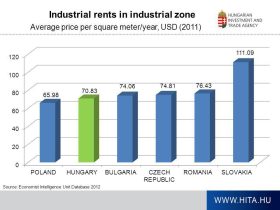
Passenger car companies in Angola
Angola, a country located in Southern Africa, has a steadily growing automotive market, particularly in the passenger car segment. Despite economic challenges and infrastructural limitations, the demand for personal vehicles in urban centers like Luanda continues to rise. This is primarily driven by a growing middle class, increasing urbanization, and a desire for greater mobility and convenience.
Several international car brands dominate the passenger car market in Angola. Among the most prominent are Toyota, Hyundai, Kia, Renault, Nissan, and Volkswagen. These brands are preferred due to their reputation for reliability, fuel efficiency, and affordability. Toyota models like the Corolla and Yaris are especially popular due to their resilience on Angola’s varied road conditions. Hyundai and Kia have also seen increasing popularity because of their modern designs and competitive pricing.
Many of these international car manufacturers operate in Angola through local dealerships and importers. One of the key players in the distribution of passenger cars is Grupo AutoStar, which handles brands like Mercedes-Benz and Mitsubishi. Another notable player is Toyota de Angola, the official distributor of Toyota vehicles in the country. These companies not only import vehicles but also provide after-sales services, including maintenance and spare parts, which are crucial in ensuring long-term customer satisfaction.
There has also been an increase in Chinese automotive brands in the Angolan market, such as Geely, Chery, and JAC Motors. These brands offer affordable alternatives to more expensive European and Japanese vehicles, making them attractive to cost-conscious consumers. The growing availability of Chinese brands is also supported by Angolan companies that seek to diversify their offerings and meet the demand for low-cost vehicles.
Due to import dependency, Angola’s passenger car market is highly influenced by foreign exchange rates and import tariffs. Cars are often subject to high import duties, making them relatively expensive. To counter this, the government has encouraged local assembly and partnerships with foreign companies. However, local manufacturing or assembly remains minimal, and most vehicles are still imported in fully built condition.
Financing options have also improved in recent years. Banks and private institutions offer vehicle financing plans, allowing more Angolans to purchase cars through installment payments. This has contributed to the steady growth of the passenger car market, particularly in cities where public transport infrastructure is limited.
In conclusion, Angola’s passenger car market is shaped by a combination of international brand presence, local distribution partnerships, and growing consumer demand. While challenges such as infrastructure and economic volatility remain, the sector continues to evolve, with opportunities for growth, especially through strategic foreign partnerships and increased affordability. As the country develops, the passenger car industry is expected to play a significant role in enhancing mobility and economic activity.


Leave a Reply